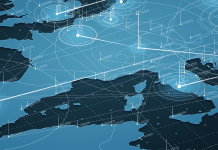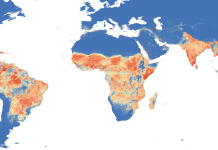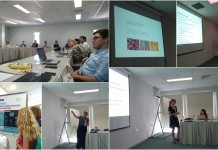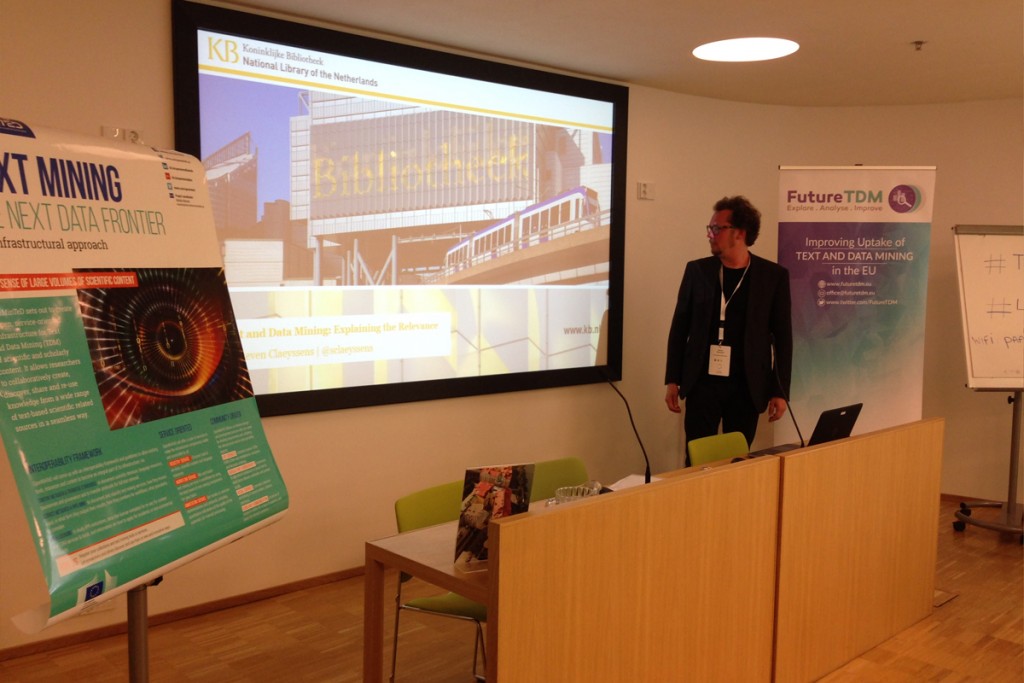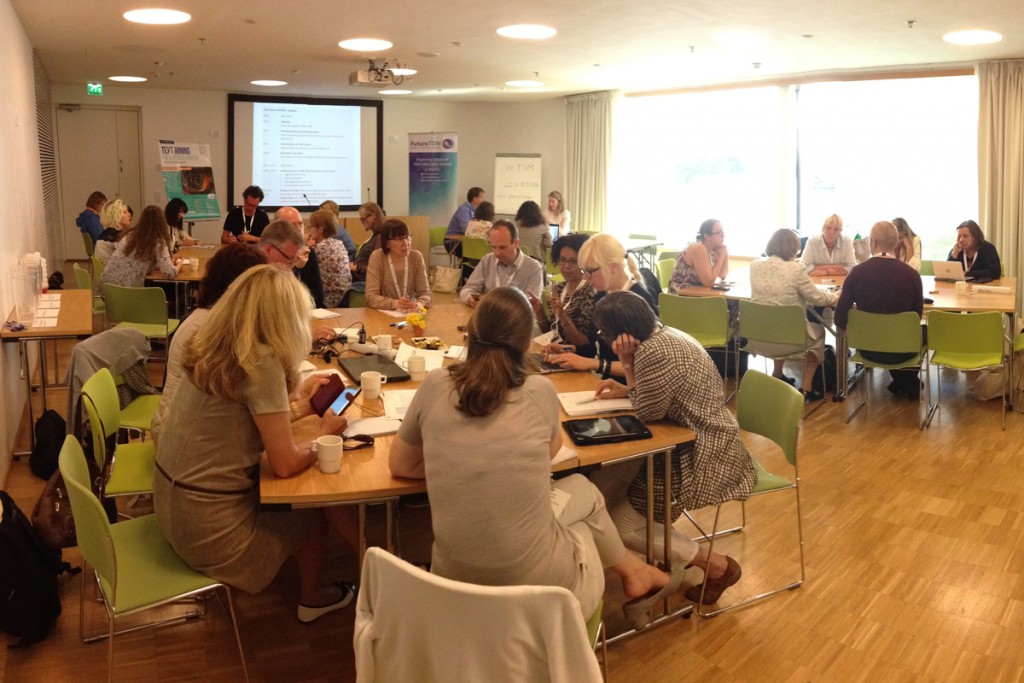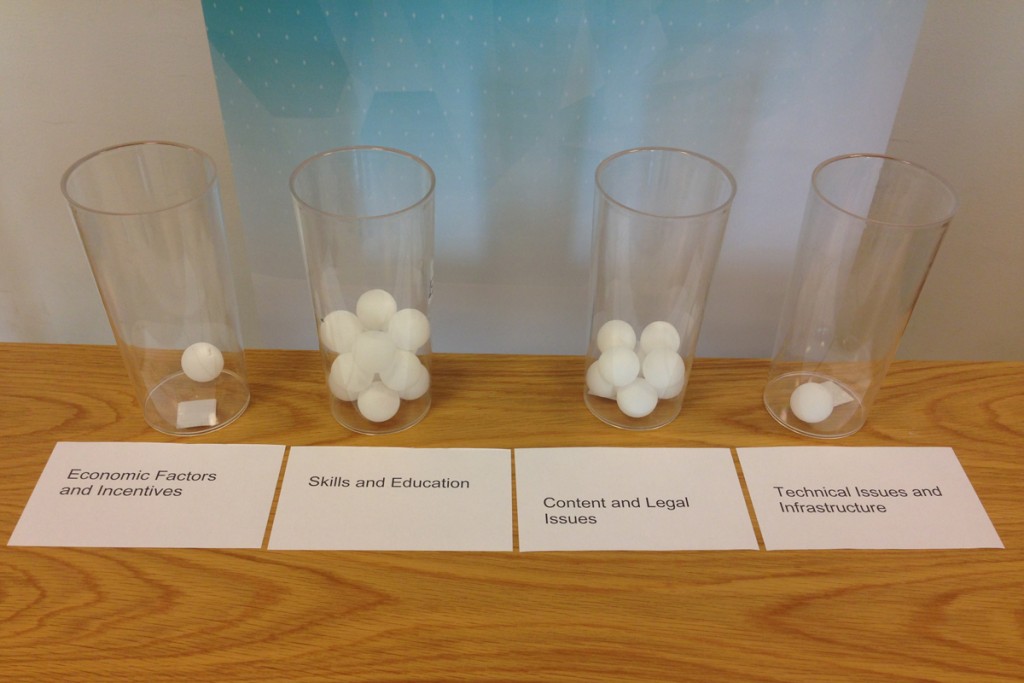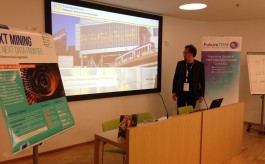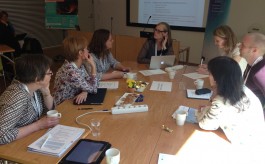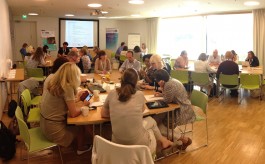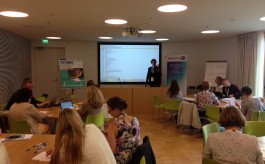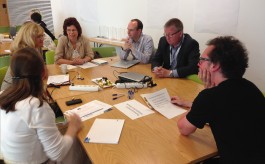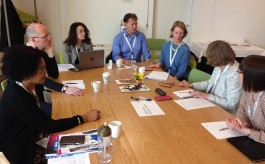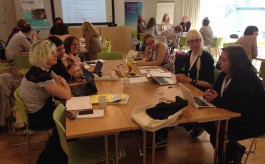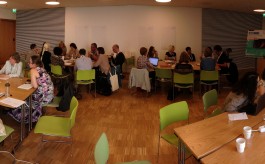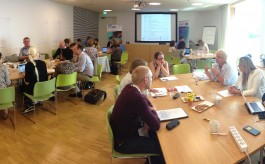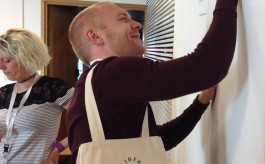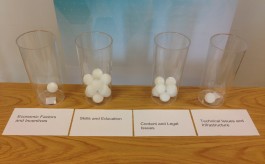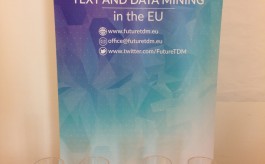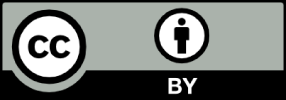Knowledge Café
29 June-1 July 2016
On 29 June, we were delighted to co-host our penultimate Knowledge Café with our friends from OpenMinTeD at this year’s highly successful LIBER Conference in Helsinki.
The event included a presentation setting the TDM scene from Dr Steven Claeyssens, Data Services Coordinator from the Dutch National Library and a fascinating case study – mining Vogue magazine – from Dr Peter Leonard, Director of the Digital Humanities Lab at Yale University Library. Dr Leonard gave us the US perspective from a renowned institution while showcasing an innovative means of ensuring enhanced patron interaction through TDM.
Participants were informed about our TDM projects. Hege van Dijke – LIBER’s Communications and Events Officer gave this presentation about OpenMinTeD. We also showed attendees our FutureTDM video, explaining why we need the valued input of the TDM community.
After fuelling up on coffee and chocolate, the participants got stuck in to the discussions around 4 themes:
- Education and skills
- Legal issues and content
- Technical and infrastructure
- Economic factors and incentives
We asked them – why aren’t we doing more content mining in the EU – what are the barriers from your perspective?
Some key issues came to the fore during the table rotations, they included the costs of access to data, the need for standardization and the level of skills and education required in the library. Some participants felt that libraries role should be as a sign-post directing researchers to advice and information, others that librarians themselves should possess TDM skills and that the library could be the ideal place for a TDM hub or lab. Open access and data were mentioned as an important goal as was the importance of advocating the opportunities offered by TDM to funders, institutions and policy makers. Most participants (though not all) felt that TDM should be more accessible for both commercial and non-commercial purposes as there was so much potential for crossover and innovation between the actors in these communities.
We asked participants to write down their take away issue from the workshop, one wrote:
Actually it is very easy – you bought content you can use it. If I buy a woolen sweater I am allowed to unravel it and make a scarf am I not?
Thanks to the energy and enthusiasm of the library community attendees, we got some incredibly useful input. This has been passed along to the project partners who are analysing the TDM landscape and coming up with recommendations to improve TDM uptake in the EU.
Keep an eye on our website www.futuretdm.eu for further developments.



